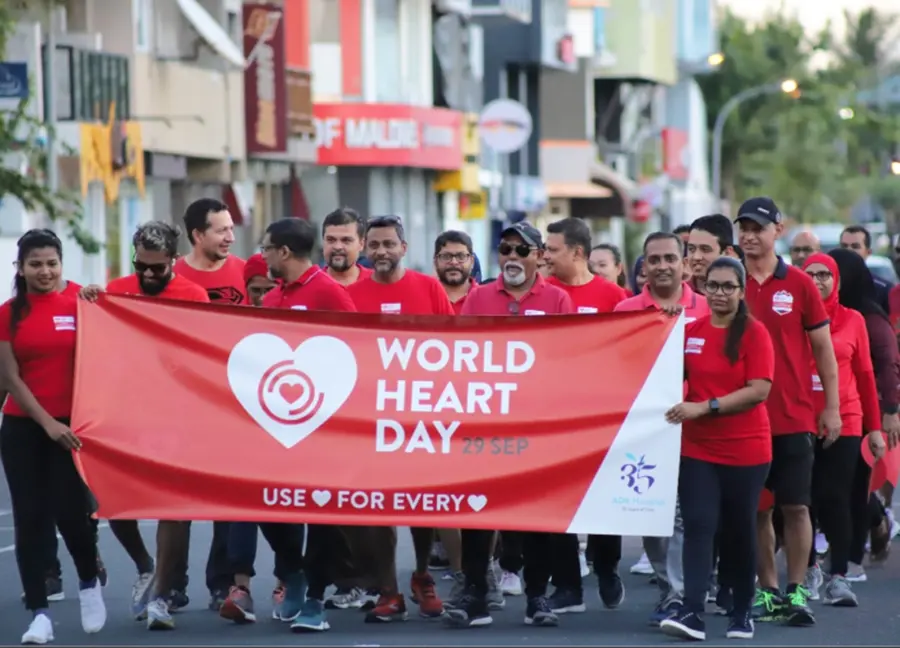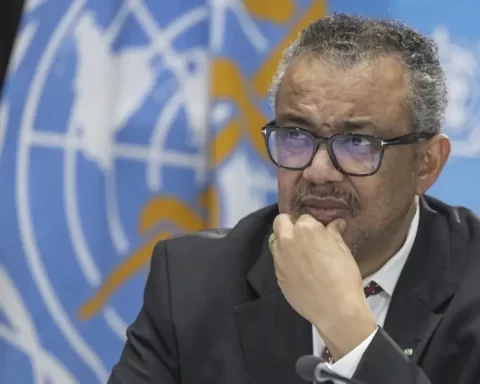New Delhi, Sep 28 (PTI) On the eve of World Heart Day, WHO South-East Asia Region urged its member states to join the global call to raise awareness about heart health and accelerate actions to prevent, detect and manage cardiovascular diseases.
The region is home to a quarter of the world’s population, said WHO Regional Director for South-East Asia Dr Poonam Khetrapal Singh.
It is experiencing a very high burden of noncommunicable diseases, she said and added that cardiovascular diseases are responsible for 3.9 million or 30 per cent of all deaths annually.
”Alarmingly, almost half (48 per cent) of these cardiovascular disease-related deaths occurred prematurely, affecting individuals aged 30-70 years and imposing significant socioeconomic burdens on families, communities and countries,” Singh said.
The main causes to the burden of cardiovascular diseases include modifiable lifestyle factors such as tobacco use, alcohol consumption, unhealthy diets — especially high salt intake — and lack of physical activity. Raised blood pressure and glucose levels are the key drivers and these can be detected, diagnosed and managed adequately in primary care, she added.
One in four adults in the region has raised blood pressure while one in 10 has diabetes. However, fewer than 15 per cent are on effective treatment coverage. Additionally, high lipid levels in the blood and the suboptimal management of acute cardiovascular events worsen cardiovascular disease mortality, the health expert pointed out.
In response to this public health importance, noncommunicable diseases have been identified as a regional flagship priority since 2014. In 2022, the region adopted the ‘Implementation Roadmap for Accelerating the Prevention and Control of NCDs in South-East Asia 2022–2030’. India’s target of reaching 75 million people with hypertension and diabetes under standard care by 2025 is the largest cover of noncommunicable diseases for primary health care in the world.
Accelerating the control of cardiovascular diseases is a priority and the WHO South-East Asia Region has called for action in four key areas, Singh underlined.
First, countries need to place cardiovascular diseases high on their agenda and expand efforts through commitment and leadership at both the policy and the programme levels, she said.
Countries have to continue implementing evidence-based tobacco control laws, in line with the WHO Framework Convention on Tobacco Control and its MPOWER package. Promote healthy diets with a specific focus on salt reduction and eliminating trans-fatty acids by implementing WHO SHAKE and WHO REPLACE technical packages.
Fourth, scale up programmes and service delivery models that improve the detection, diagnosis and management of hypertension and diabetes in primary health care with referral mechanisms, she added.
The goal should be to achieve full implementation of the WHO HEARTS technical package, along with a seamless care continuum for patients with cardiovascular diseases, with an emphasis on reducing complications and managing acute emergencies with proper care coordination, according to Singh. Countries need to demonstrate impact through utilising digital solutions for better coverage and control rates, she further said.
”These actions are critical not only for public health but also for achieving Sustainable Development Goal (SDG) targets related to noncommunicable diseases and universal health coverage. With only seven years left until the 2030 SDG target deadline, on this World Heart Day, it’s a call for all of us to take action and empower ourselves to address cardiovascular disease risk factors and improve disease outcomes,” she said.





